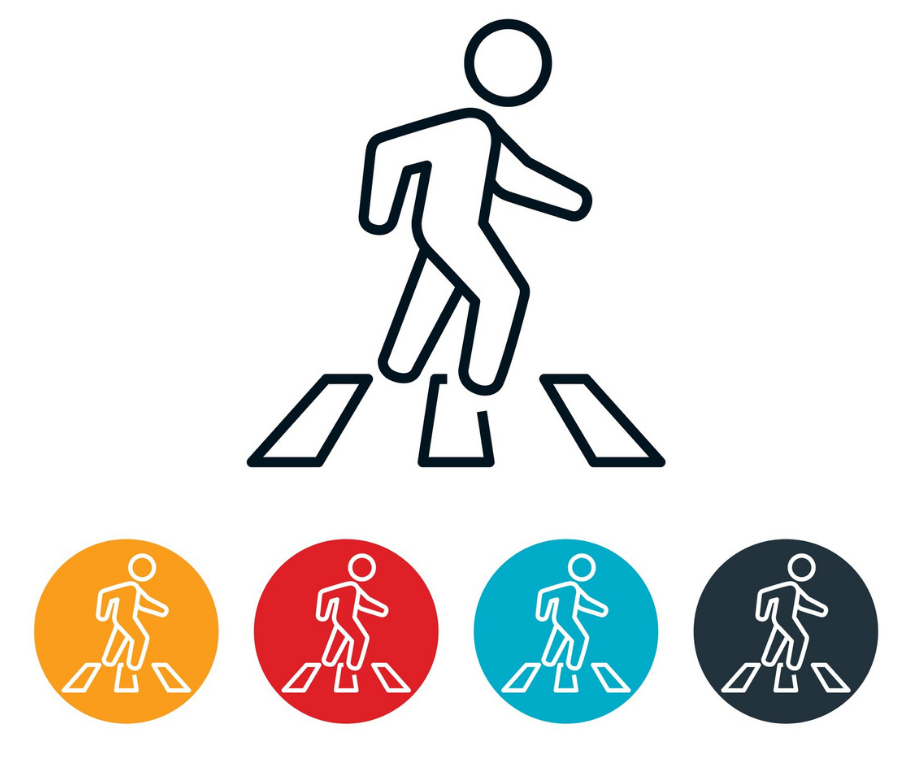It’s Spring. Those of us who hibernated all winter are ready to get outside. However, there’s always something that gets in the way of our spring activities list – that pesky thing called work.
For those of us pinned to a desk working from home or at the office, making space for time outdoors is necessary, and many experts say you should spend it taking a walk.
But what if there was a way we could combine our professional responsibilities with the endless benefits of going for a walk outside?
First off, what benefits? Why is walking good for you?
How about:
- Appetite regulation.
- Better cognitive function (concentration, reasoning, memory, etc.).
- Circadian rhythm alignment.
- Improved immune system and cardiovascular health.
- Improved mood.
- Improved sociability.
- Increased blood flow.
- Increased energy.
- Increased Vitamin D.
- Stress reduction.
- Stronger muscles and bones.
Walking is advantageous for solo thinking, small group brainstorming sessions, and meetings (one-on-one or in small groups). In fact, adding walking to your workday can actually increase your success. Top CEOS like Facebook founder Mark Zuckerberg and Amazon founder Jeff Bezos are just two of many advocates for walking at work; here’s why:
#1 Walking Increases Creativity

Our brain releases calming chemicals during walks, including endorphins, endocannabinoids, and dopamine. As such, our inhibitions lower, and we are better able to deal with obstacles, which increases the output of creative ideas and different perspectives.
Walking is a repetitive exercise, so while we need to focus on the task to put one foot in front of the other during a walking workout, it requires minimal concentration, which we can dedicate to other things like professional problem-solving and innovation.
Walking outdoors adds additional components of low-focus meditation when we concentrate on a pleasing element of nature like trees, rolling waves, or a mountain range, which diminishes overcrowded thoughts and allows us to think clearer and with fewer distractions.
Walking increases energy and blood flow to the brain, which helps improve cognitive function. Walking outside also increases vitamin d, which raises serotonin levels in our brains and elevates our mood. Walking in nature offers a physiological defense to stress by lowering our heart rate and blood pressure, but nature walks also magnify our spiritual and philosophical connections with the outside world. A deeper connection with the outside world elevates our creative approach to professional and personal tasks.
A Stanford study concluded that just a short walk could increase your creative output by approximately 60%.
#2 Walking Increases Sociability

As we walk, our mood elevates, our stresses dissipate, and our professional hierarchy fades. Walking side-by-side with your boss transforms an uptight business meeting where you may feel nervous offering ideas into a casual activity where conversation and ideas can flow more freely. Legend has it that centuries ago, King Arthur created the Round Table so that everyone was seated the same – there was no visual chain of command – walking meetings work much in the same way. Eye contact is also minimized during a walk, which can further lower feelings of self-consciousness.
#3 Walking Increases Productivity

According to numerous studies, walking enhances our connection with our mind and body, which increases focus. A walking meeting will also eliminate office distractions so that you can think more clearly. Walking for exercise helps us stay in shape, boosts our immune system, increases energy, and lowers anxiety, which all elevate our ability to perform tasks. Additionally, walking is a mood booster, especially when paired with the serotonin-increasing vitamin d found in sunlight when we walk outdoors. A positive mindset alone can increase productivity by more than 30%, and when combined with numerous other walking benefits, the sky’s the limit.
Bonus Info

Stuck indoors? Harness the benefits of walking everyday (walking for an hour, walking for 30 minutes, or even taking shorter walks less than 20 minutes). No matter the season, daily walks can drastically improve your mental health and physical health. Many experts warn against the dangers of sitting at a desk all day, including James Levine, Professor of Medicine at the Mayo Clinic, who claims that “sitting is more dangerous than smoking.” Other medical professionals are quick to point out additional indoor dangers like germs and the use of hazardous cleaning supplies, as well as with the sedentary effects of diminished movement. One article notes that before the Covid-19 Pandemic, people spent less time outside each day than the allotted time for prison inmates.
How to Schedule Walking Meetings?

Make outdoor walks during your workday a necessity.
- Schedule regular walking meetings by phone or in-person
- Give enough notice
- Make sure you and others are dressed for the occasion
- Be mindful of physical restrictions
- Be aware of the weather
- Plan for the best time of day (morning walks, day walks, or evening walks)
- Set an appropriate amount of time
- Plan a route or have a designated place in mind to wander
- Bring something to record notations
- Take breaks when needed
Sometimes it’s also good to have an enjoyable destination in mind, like a lookout point or healthy eatery.

